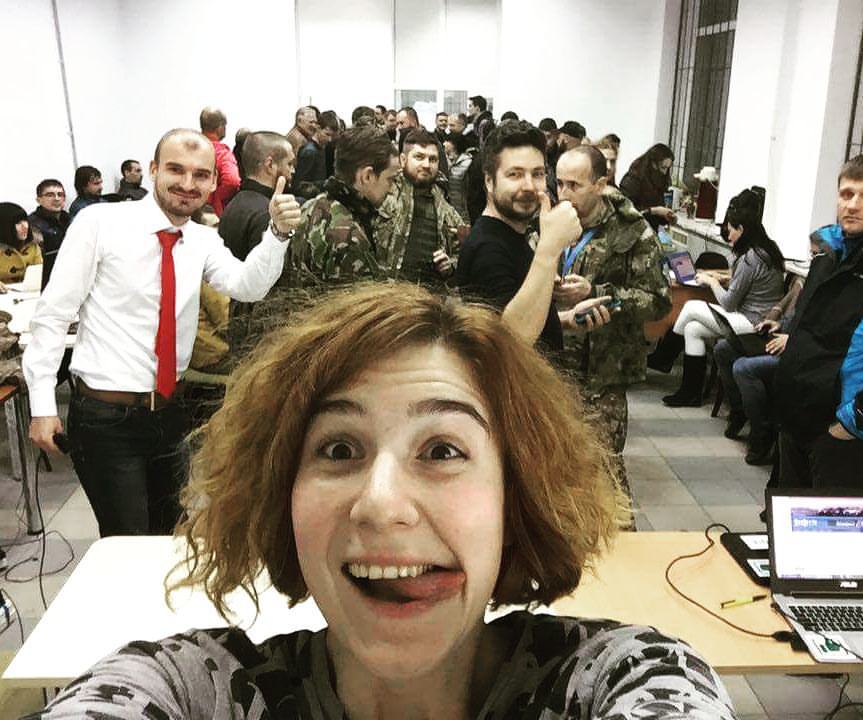On April 23, independent centrist Emmanuel Macron and far-right National Front candidate Marine Le Pen won the first round of the French presidential elections. The Kremlin sees France as a potential counterweight against Germany in the EU, and against the US in the NATO. Moreover, France is a member of so-called Normandy Group for resolving the conflict in Ukraine’s East.
A month before the election Le Pen was campaigning in the Kremlin having a surprise meeting with Vladimir Putin, where he told her that Russia had no plans to meddle in the French election.
In February, Macron’s campaign reported “thousands of attempted hacks” of its servers and accused Russian state media outlets of spreading slanders about Macron, including groundless allegations of being a “US agent” and rumors
about Macron’s sexual orientation.
Read also: Moscow TV propagandist says terrorist attacks in France could still turn the tide for Le Pen
Security researchers from Trend Micro said that on March 15 they spotted a hacking group they believe to be a Russian intelligence unit targeting Macron’s campaign.
Russia has a long history of meddling in other countries' elections
At the 2004 Ukraine’s presidential elections, Moscow endorsed pro-Russian candidate Viktor Yanukovych. The Russian media praised him as a President desirable for Russia and abused his democratic rival, Viktor Yushchenko. The Orange revolution disrupted Kremlin’s plans then.
The malware was used to attack the servers at Ukraine’s central election commission amid 2014 Ukraine’s elections.
Hungary, the Baltic States, and Georgia have also been the target of political subversion by the Kremlin, which has often sought to bolster the political ambitions of far-right and Euro-skeptic parties or foster instability, experts said
.
Numerous hacking incidents occurred during the 2016 US presidential campaign, both Republicans and Democrats issued calls for a deeper probe of Russian interference.
Dutch authorities went old school to prevent the recent election from manipulating the results through cyber attacks, they counted paper ballots by hand.
The defense minister of Denmark accused the Russian government of a campaign to infiltrate email accounts at his ministry.
A committee in the UK's House of Commons “does not rule out
" that the crash of a key voter registration website might have been the result of a foreign cyber attack ahead of Britain’s referendum.
New Poll: How will Russia interfere with the final round of the French presidential elections?
There are hackers, fake news, freaks, pranksters, trolls in Russia's new soft power weapon arsenal. To get Marine Le Pen elected the Kremlin should intensify its efforts in promoting Le Pen and suppressing Macron. What is Russia going to do to reach its goal in France? Tell us your opinion on this matter.
[democracy id="4"]
Read more:
- How the Kremlin influences the West using Russian criminal groups in Europe
- Results of French presidential elections will shape Ukraine’s future in Europe
- Georgia slams “elections” in occupied Abkhazia as legitimizing Russian aggression
- How France is undermining the sanctions against Russia
- Ukrainian hackers publish Surkov’s plans to destabilize Ukraine in coming months
- Holding elections now will destabilize Donbas
- Ukraine’s central and regional Electoral Committee servers secure, not hacked
- Book details Kremlin’s influence networks in France
- Elections in the occupied territories delegitimized Russia’s Parliament
- RT channel’s assets seized in France
- Yatseniuk compares events in France and the Donbas
- International observer of “elections” in Donbas admits they were paid by Russia





